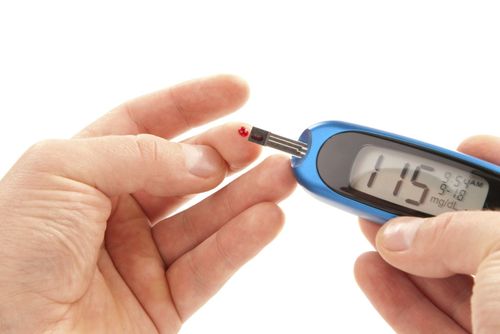This is an automatically translated article.
The article was professionally consulted by Specialist Doctor I Nguyen Thi Man - Doctor of Obstetrics and Gynecology - Department of Obstetrics and Gynecology - Vinmec Danang International General HospitalThe glucose tolerance test is used to diagnose prediabetes. Thereby helping the patient to anticipate the disease so that appropriate treatment measures can be taken.
1. What is impaired glucose tolerance?
Glucose intolerance is a condition in which blood glucose levels are higher than normal but lower than in people with diabetes. This is a combination of impaired insulin production and insulin resistance.People with impaired glucose tolerance will have a high risk of diabetes as well as other cardiovascular diseases (peripheral artery disease, stroke...).
2. Diagnostic criteria for glucose intolerance
Normally, the glucose tolerance test (OGTT) will be performed in the morning (the patient has fasted for 8 hours before: dinner, fasting) and the test is done 3 times: the first time - fasting blood draw. , then drink a glucose-containing solution specially used for glucose tolerance testing, the second time- draw blood 1 hour after drinking sugar water, the third time - draw blood 2 hours after drinking sugar water.A person is diagnosed with impaired glucose tolerance when one or more of the test results are dysfunctional.
In addition, HbA1c can be used to evaluate glucose intolerance, with a person with an HbA1c between 42 - 47 mmol/mol (6.0 - 6.5%) representing a high risk. of diabetes.
3. Causes of impaired glucose tolerance in the blood
The causes of impaired glucose tolerance are the same as type 2 diabetes, including:People who are overweight or obese;

4. Signs to recognize glucose disorders
Detecting people with impaired glucose tolerance is very difficult, most of them do not have any symptoms. Patients can only detect it through blood tests during health checks.However, you can pay attention to some of the following minor symptoms, including: eating a lot, drinking a lot, urinating a lot, being thin a lot. These symptoms tend to develop quite slowly, progressing over weeks or even months.
If you have any symptoms of diabetes, you should see a doctor sooner. It is important that you are regularly monitored by your doctor, and that you follow the instructions and instructions of the specialist.
5. Prevention of glucose intolerance
Glucose intolerance, if detected and treated early, can help prevent or slow the development of diabetes and heart disease:Lifestyle changes: This is one of the most effective measures to prevent the progression of impaired glucose tolerance to diabetes.

The advantages of performing the Glucose test at Vinmec International General Hospital include:
Modern and highly accurate testing system. The team of doctors and nurses have extensive experience in the diagnosis and treatment of diseases. Automated biochemical testing machine system AU 680, AU 480 and very high accuracy.
Please dial HOTLINE for more information or register for an appointment HERE. Download MyVinmec app to make appointments faster and to manage your bookings easily.














